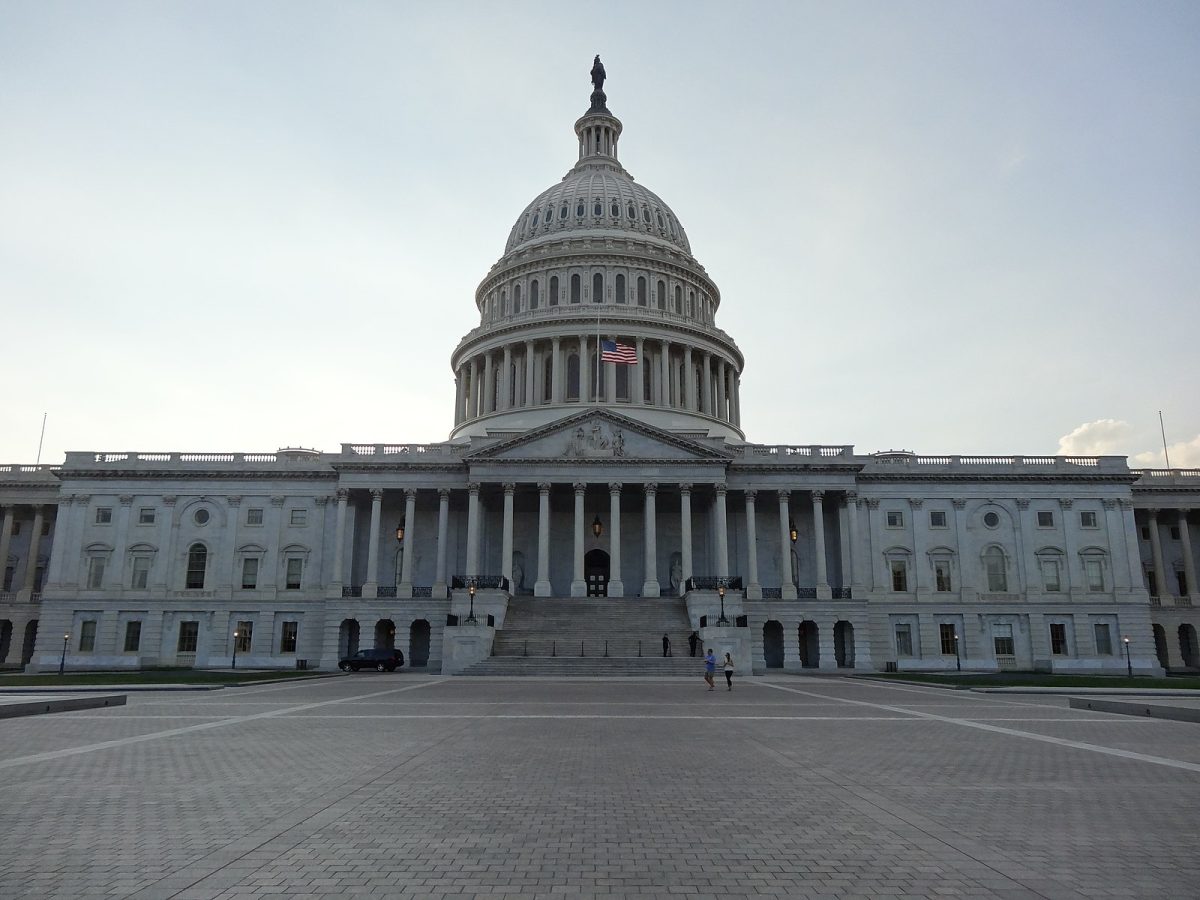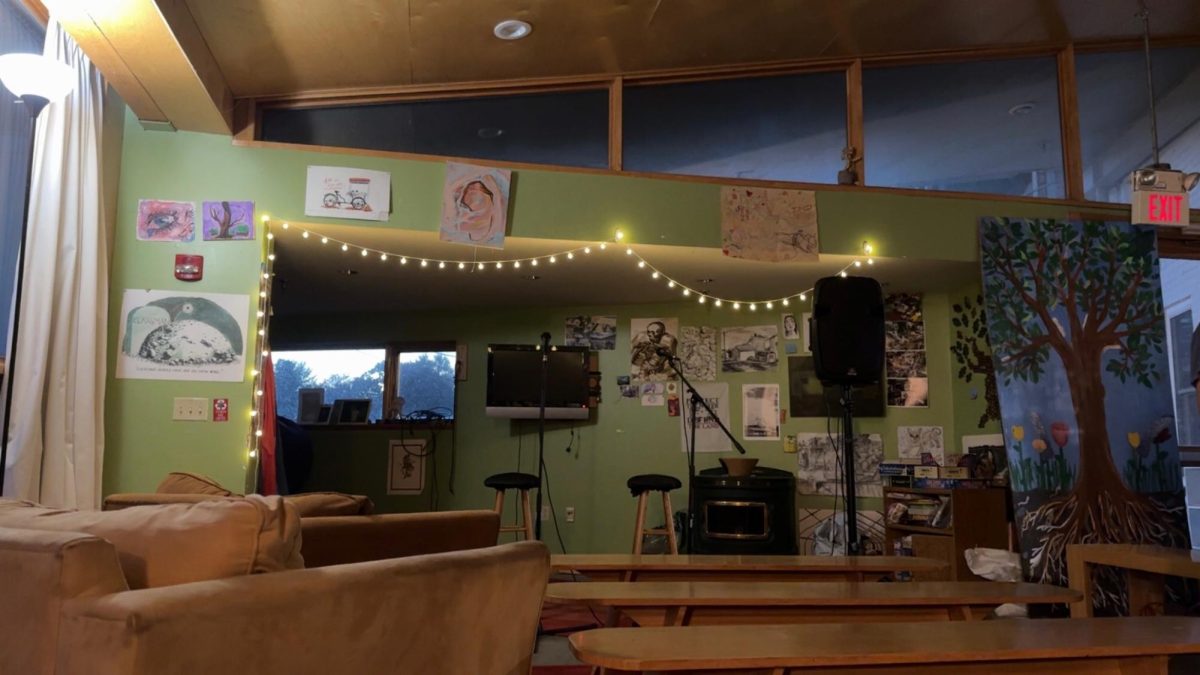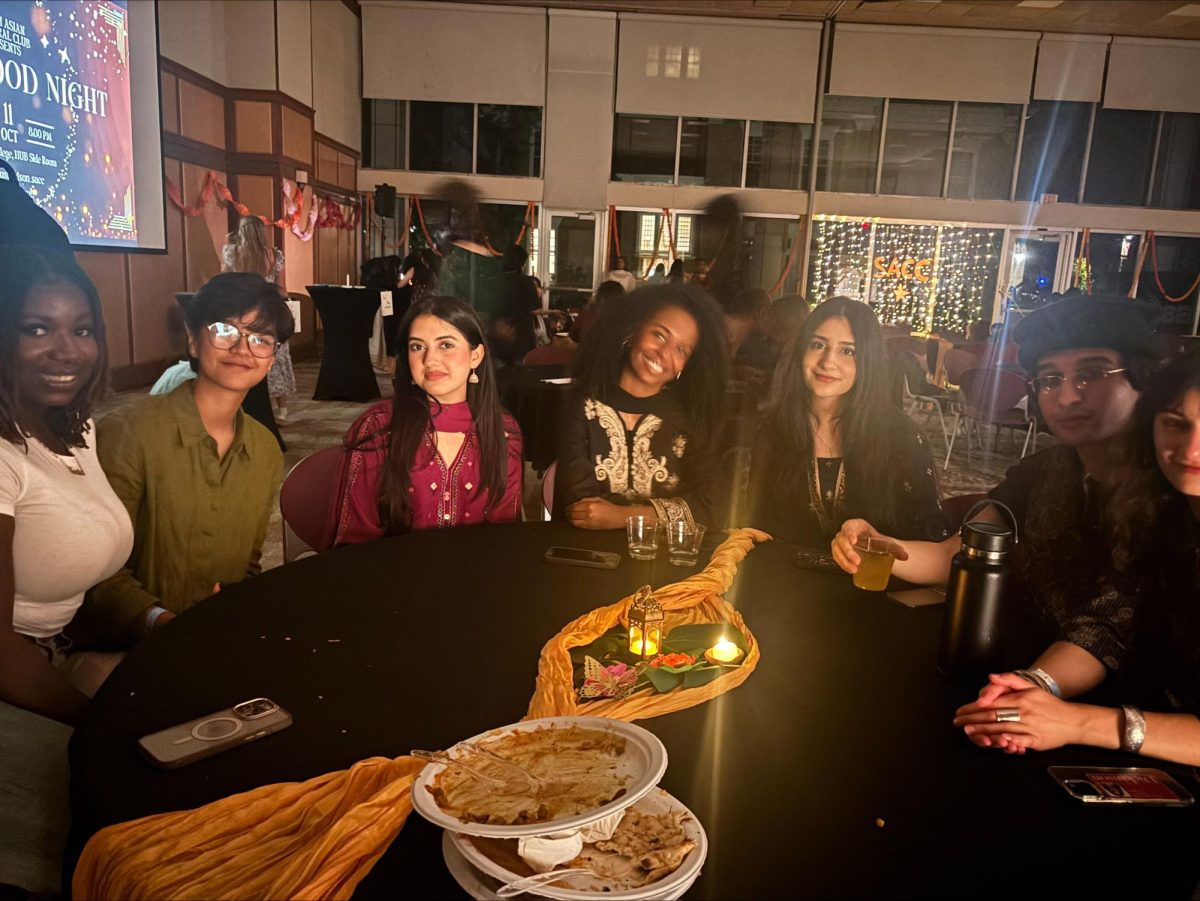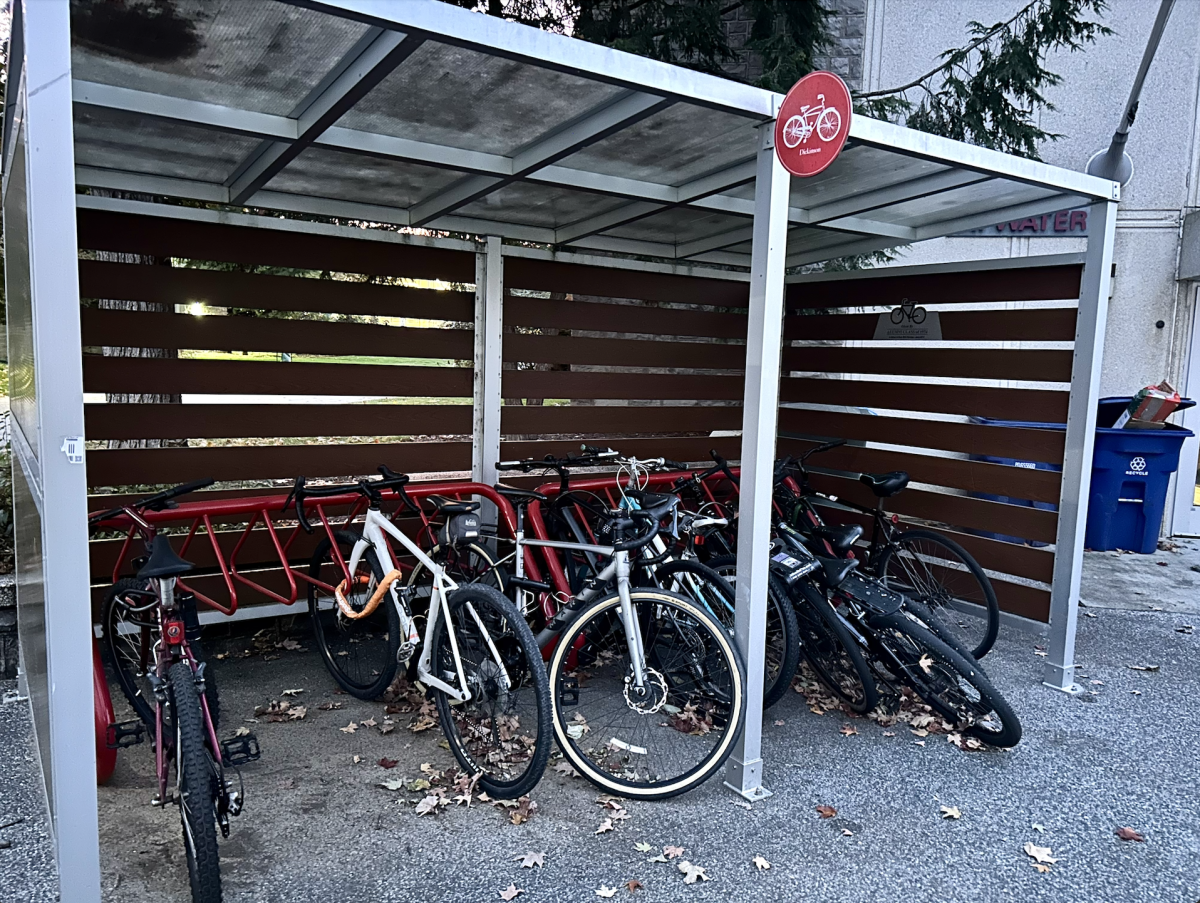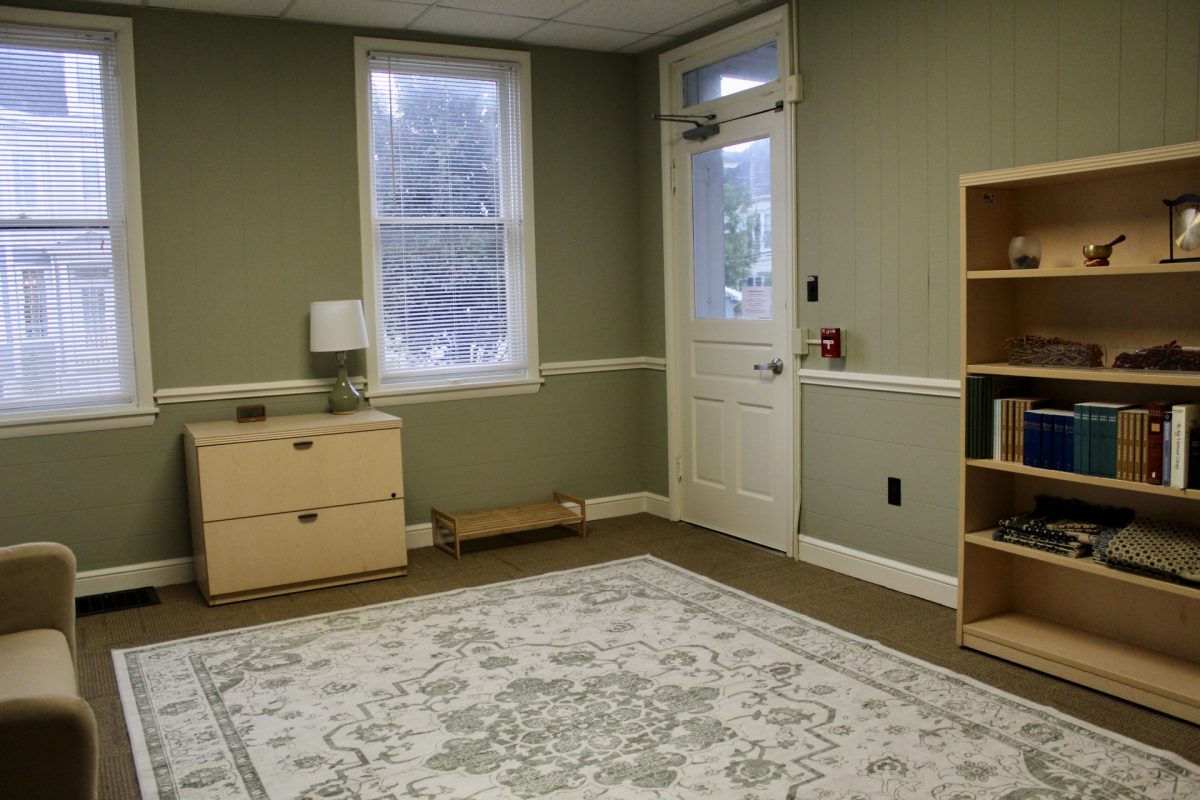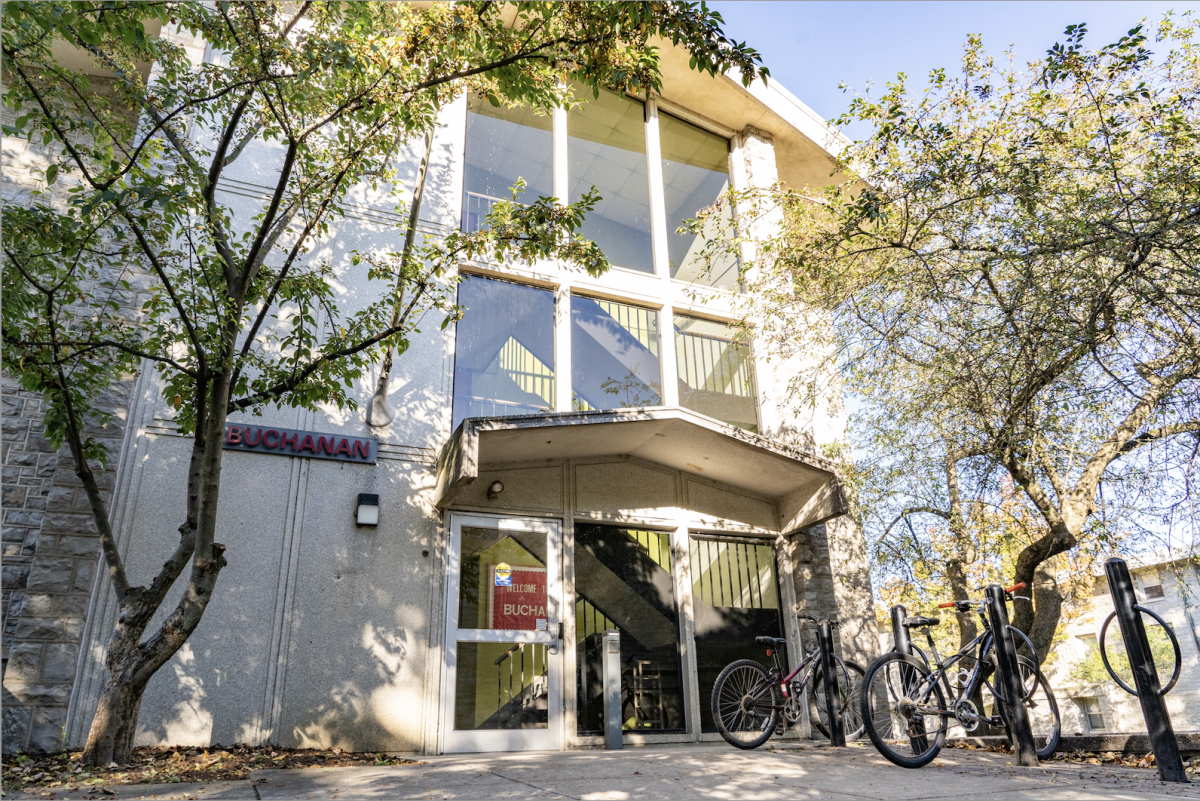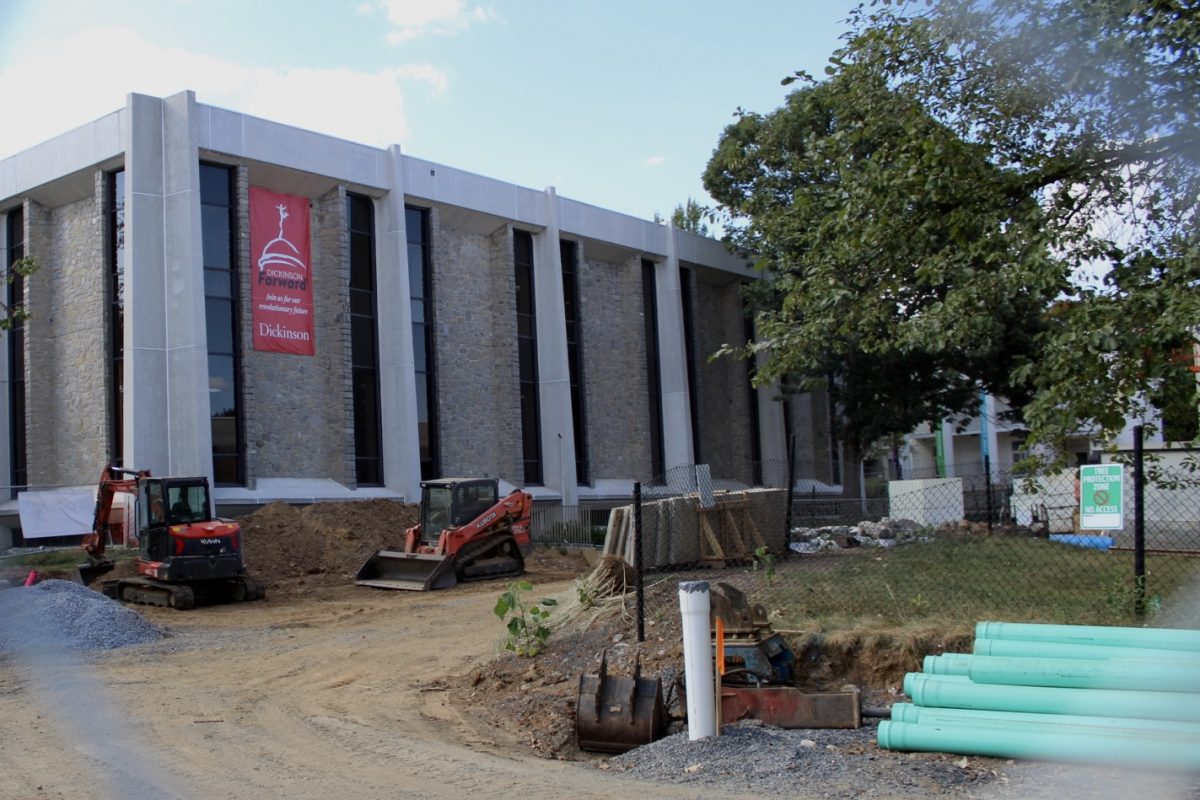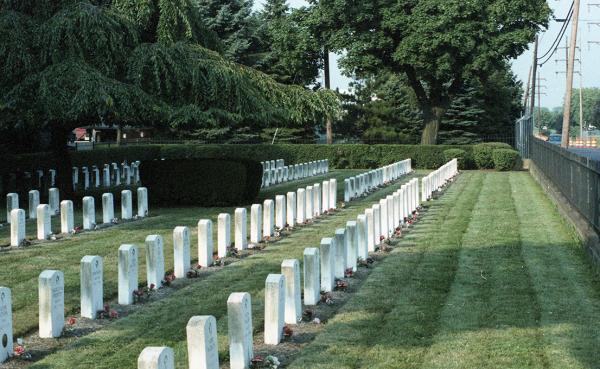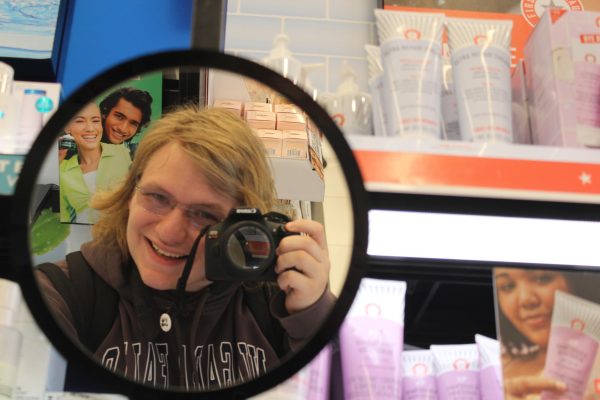After receiving an $800,000 grant from the Mellon Foundation earlier this year to create a center for Indigenous studies, Dickinson’s new Center for the Futures of Native Peoples (CFNP) has officially opened this semester.
Located at 239 W Louther St, behind the Stern Center, CFNP will lead academic conversations and sessions about the study of Indigenous and Native American cultures. It will also focus on the history of the Carlisle Indian Industrial School, a 19th-century boarding school that led a federal initiative to assimilate Native Americans into white society as a form of cultural erasure.
One of CFNP’s primary purposes is for research. In the future, students will be able to work with the center to conduct their own research on Indigenous studies. John Truden, one of the Center’s two postdoctoral fellows, will be conducting his research around Hampton University in Virginia and its role on Carlisle’s history.
Darren Lone Fight, Interim Director of the CFNP, highlighted this history, revealing that Richard Pratt, the founder of the Carlisle Indian Industrial School, “was illegally holding 72 [Native] prisoners of war in Florida, which is really where the first class of Carlisle comes from.”
Before he founded the Industrial School, Pratt kept these prisoners at Hampton, which to this day contains a large cemetery of Native children. Lone Fight said that “there’s a lot less digitized about [Hampton’s] archives, so… the digitization project at Dickinson College is looking to expand to include Hampton and anywhere else we can do that.”
One of Lone Fight’s goals this school year is to create a minor in Native Studies at Dickinson. Lone Fight said “Each semester, there’s probably somewhere between five and 12 Native American and Indigenous studies courses… but they aren’t together,” which can make it difficult for students to find these classes. “So, in some sense, the goal of the minor is to really just put on the administrative curriculum, what we already have,” Lone Fight said.
CFNP has several events planned for the Fall semester. The center will host an open house on October 9, and feature several speakers throughout the semester. The CFNP will also play a key role in hosting a two-week campus residency with Rose-Walters Prize recipient Tara Houska, as well as co-sponsoring a Clarke Forum lecture in November with Columbia University professor Audra Simpson.
The Center for the Futures of Native Peoples is open during regular business hours, and they intend to create a website and social media presence in the coming weeks. The Center can be reached at [email protected] for more information.



